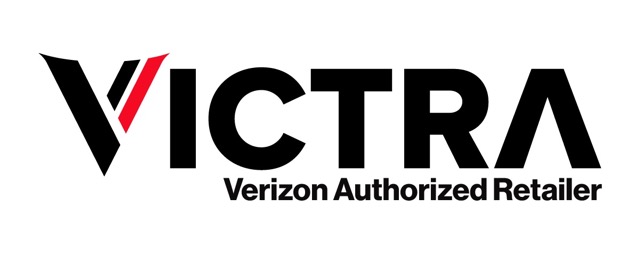A parent working from home can lose audio during an important client call. A student can get kicked out of a test session mid-exam. A smart home system might lag when you try to check a security camera feed or unlock the front door remotely. Even simple tasks like downloading large files or uploading photos to the cloud can drag on unnecessarily.
Whether you’re managing a household full of devices, running a business from your living room, or just trying to stream your favorite show without interruptions, your experience depends on the speed and stability of your internet connection.
We understand: Figuring out what speed you actually need isn’t always straightforward. Terms like “Mbps,” “latency,” and “bandwidth” are often tossed around without context. If you don’t understand the techy terms, it’s easy to overpay for unnecessary features or end up with a service that can’t handle your daily needs.
This guide will help you understand how much internet speed you need, how it works, what different online activities require, and how to match your household usage to the right plan. We’ll also explain how Verizon Home Internet solutions from Victra—including 5G and Fios options—can support everything from basic browsing to high-demand streaming and gaming. By the end, you’ll have a clear answer to the question: What internet speed do I need?
What Is Internet Speed, Really?
Internet speed is measured in megabits per second (Mbps) and reflects how quickly data travels between your device and the internet. The higher the Mbps, the faster your connection can send and receive information. But speed isn’t just one number—there are two types that matter.
- Download speed affects how fast you can access content like streaming video, websites, music, or email attachments.
- Upload speed affects how fast you can send data, like posting a video to social media, backing up files to the cloud, or sharing your screen during a video call.
- Latency, or delay in data transmission, plays a major role in how smooth your connection feels. While speed (measured in Mbps) determines how much data can move at once, latency measures how quickly each packet of data travels back and forth between your device and the server.
It’s important to consider both types of internet speed and latency for households that stream on multiple devices, work from home, game online, or run smart home systems. A plan that looks fast on paper but lacks sufficient upload bandwidth may still struggle under real-world conditions. High latency can cause noticeable delays, even on fast connections. For example, in online gaming, latency can result in lag that makes actions appear seconds after you press a button. In video conferencing tools like Zoom or Microsoft Teams, it can create awkward pauses, frozen screens, or people talking over each other because of delayed audio. Even activities like remote desktop use or cloud-based work platforms can feel unresponsive if latency is too high.
That’s why choosing a reliable Verizon Fios or 5G Home Internet plan through Victra isn’t just about Mbps—it’s also about ensuring low-latency performance for real-time applications.
Understanding these details is key to choosing a home internet plan that fits your actual usage—not just what sounds fast.

How Many Mbps Do I Need? It Depends.
Internet speed requirements vary depending on what you do online and how many people or devices share the connection. A single user checking email and reading the news has very different needs than a household streaming multiple 4K videos while running smart devices and participating in video calls.
Choosing a plan that’s too slow can result in buffering, lag, and lost productivity, while choosing one that’s too fast for your needs may mean paying more than necessary.
Here’s a breakdown of general usage categories and the estimated internet speeds needed to support each one effectively:
Basic Use (1-5 Mbps per device)
Activities like web browsing, email, social media, and music streaming fall into this category. This is typically enough for a single user with light usage habits.
HD Streaming and Video Calls (5-25 Mbps per device)
Streaming HD content on services like Netflix or conducting Zoom calls requires more bandwidth. If more than one person is streaming or in meetings, speeds should scale accordingly.
4K Streaming and Online Gaming (25-100 Mbps per device)
Streaming Ultra HD video or playing graphics-intensive games online can demand significantly higher speeds, especially when combined with other household activity.
Remote Work, Cloud Use, or Uploading Large Files (10-35 Mbps upload speed)
Upload speed matters when sending large documents, using cloud-based tools, or screen-sharing in real time. A higher upload threshold is essential for professionals working from home.
Smart Home Systems and Multiple Users (200+ Mbps total recommended)
Homes with smart security systems, thermostats, cameras, and multiple connected users benefit from higher-speed plans to avoid congestion and ensure reliability.
Verizon Home Internet options available through Victra—such as 5G Home and Fios—offer plans that meet or exceed these requirements. Selecting the right plan depends on understanding your current and future internet usage.
What Internet Speed Do You Need?
Different living situations demand different internet speeds. It’s not just about how many people live in your home—it’s about how each person spends their time online. From solo streamers to connected families, choosing the right speed tier is about matching your day-to-day habits with a plan that can keep up.
For Individuals
If you live alone and mostly browse the web, check email, and stream the occasional HD video, a plan offering download speeds around 100 Mbps is typically sufficient. This speed tier also allows for stable video calls and light cloud use, even with background updates running on your devices. Verizon 5G Home Internet through Victra is a practical fit for this setup, offering fast, wireless connectivity without the need for cable lines.
For Couples or Roommates
When two or more people share a connection, streaming on separate devices or attending virtual meetings at the same time, speed demands rise. In these cases, 200-300 Mbps is often a better baseline. This helps avoid bandwidth competition and ensures everyone can stream, game, or work without disruption. Verizon Fios Internet available through Victra can offer symmetrical download and upload speeds, which is helpful if both users need to send large files or participate in video calls.
For Families or Smart Homes
With multiple users and devices running at once—streaming 4K video, gaming online, backing up files, and controlling smart thermostats or cameras—higher-speed plans are necessary. Look for 500 Mbps or more, depending on the number of devices and users. Verizon Fios plans from Victra can support bandwidth-heavy households with speeds that maintain performance across simultaneous activities.
For Remote Work or Business Use
Professionals working from home often use VPNs, video conferencing, large file transfers, or cloud-based tools. For a smooth experience, upload speed becomes just as important as download speed. Plans with 300 Mbps or higher (and at least 20 Mbps upload) are ideal to support consistent performance during peak work hours. Victra offers both Verizon 5G Home and Fios options that support remote business functions with the reliability needed for uninterrupted productivity.

Five Reasons to Choose Verizon Home Internet
Once you know how much speed you need, the next step is choosing a provider that can deliver it. Verizon Home Internet, available through Victra, offers several advantages that make it a dependable choice for individuals, families, and businesses alike.
1. Reliable Performance
Verizon Fios relies on fiber-optic technology, which transmits data using light rather than copper wiring. This makes it far less susceptible to slowdowns during peak hours, giving you consistent performance even when your neighbors are online. With symmetrical speeds, Fios ensures upload performance is just as strong as downloads—ideal for video calls, file sharing, or online collaboration. Verizon 5G Home Internet offers a wireless alternative that taps into the strength of Verizon’s 5G Ultra Wideband network, delivering speeds capable of supporting multiple high-demand tasks at the same time. Both options are built for modern households that rely on uninterrupted connectivity.
2. No Data Caps
Many internet providers limit monthly usage or throttle speeds after a certain threshold. Verizon Home Internet plans do not impose data caps, meaning you can stream movies, game online, back up your files, and use smart home systems freely. Unlimited data is especially valuable for families with multiple heavy users, or for anyone working remotely who cannot risk interruptions caused by data restrictions.
3. Fast and Simple Setup
Verizon 5G LTE Home Internet is designed for ease of use, arriving with a self-install kit that allows most customers to get online in under an hour. There’s no need for drilling or waiting for a technician. For Fios, installation is straightforward and provides a stable, hardwired connection where available. Both options are designed to get you up and running quickly so you can focus on work, entertainment, and everyday life instead of worrying about complicated installation steps.
4. Comprehensive Support
Choosing Victra means you’ll have access to Verizon’s extensive customer service resources and local in-store support. Whether you need help setting up your equipment, troubleshooting a connection, or understanding your bill, support is available online, by phone, or face-to-face at Victra locations. This combination of national and local assistance gives you more flexibility and reassurance than working with an online-only provider.

5. Exclusive Offers Through Victra
Victra often provides promotions and bundles on Verizon Home Internet plans, which can include discounts, equipment deals, or package savings when combined with wireless services. Beyond pricing, Victra’s in-store experts can walk you through the available options and recommend the best plan based on your household’s actual internet usage. This tailored approach helps you avoid overspending while ensuring your plan has the capacity to handle your specific needs.
Find the Internet Plan That’s Right for You
The right internet speed makes everything smoother—streaming, gaming, working, and keeping your smart devices connected. If your current service falls short, upgrading to Verizon Home Internet through Victra gives you the performance you need without the guesswork.
Choose Verizon Fios for fiber-optic reliability and equal upload and download speeds, or Verizon 5G Home Internet for fast wireless service that sets up quickly. Both options are available through Victra with promotions and support to make switching simple.
Stop settling for slow connections. Get the speed your home or business demands.

Frequently Asked Questions About Internet Speed
Understanding internet speed can be confusing, so here are answers to some of the most common questions customers ask when choosing a plan.
What’s the difference between upload and download speeds?
Download speed measures how quickly data is pulled from the internet to your device, which affects streaming, browsing, and file downloads. Upload speed measures how fast your device sends data back, which impacts tasks like video calls, cloud backups, and online gaming. Both are important, but households that work from home or share large files need stronger upload speeds in addition to reliable downloads.
How can I test my current internet speed?
What happens if I have more internet speed than I need?
Having extra bandwidth does not harm your connection, but it can mean paying for capacity you rarely use. For example, a single user who mostly browses the web will not benefit from a gigabit plan designed for multi-device households. The best approach is to match your actual usage with a plan that provides enough speed for daily activities without unnecessary cost.
What internet speed do I need for gaming?
Online gaming depends on both speed and latency. Most modern games can run on 25-50 Mbps, but multiplayer or competitive gamers often prefer faster connections to avoid lag. Upload speed also matters when interacting with other players in real time. Verizon 5G Home and Fios options available through Victra provide the low-latency performance needed for smooth gaming sessions.
What internet speed do I need for streaming in 4K?
Streaming 4K content typically requires at least 25 Mbps per device, and higher speeds are recommended when multiple streams run at once. If your household streams on several TVs while using other connected devices, plans offering 200 Mbps or more will ensure consistent playback without buffering. Verizon Fios plans through Victra are well-suited for this type of usage.
How many Mbps do I need to work from home?
Remote workers should consider both download and upload speeds. Video calls, cloud storage, and collaboration platforms perform best with at least 100-200 Mbps and a reliable upload speed of 10 Mbps or more. Larger file transfers or regular video conferencing can benefit from even faster service. Verizon Fios provides symmetrical speeds that support both directions equally, making it a strong choice for home offices.
Have a Question?
Have a question? We are ready to help!
Give us a call or type in your information and your question, and we will get back to you as soon as possible. Ask about Billing and Payments, Account Management, Plans and Addons, Troubleshooting, and more. Ask us anything!


